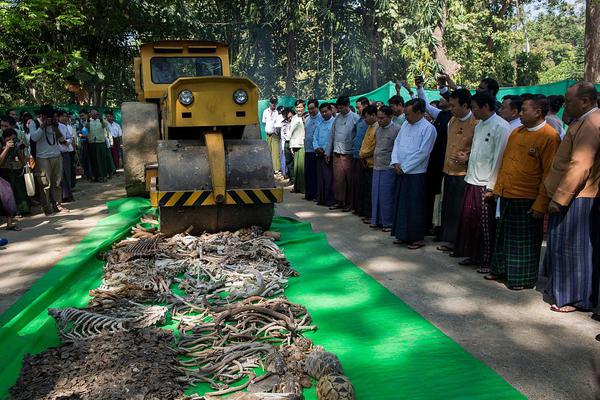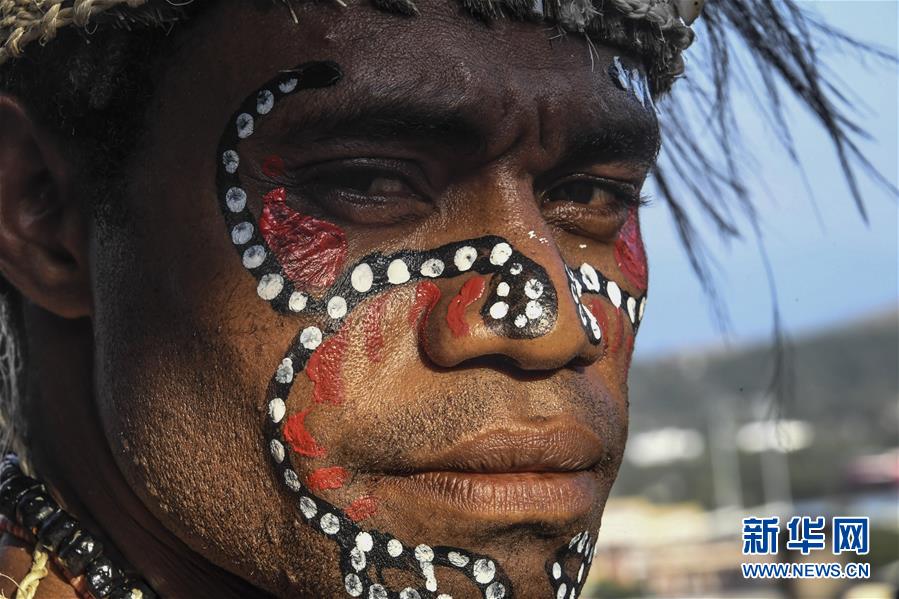- 777bet casino
- 2025-01-05 作者:华二君 来源:https://bricks.ucepts.de/wp-content/plugins/twentytwentyseven/
-
摘要:777bet casino 。
 777bet casino
Provident Bancorp, Inc. Adopts Stock Repurchase ProgramCyber Monday has hit Amazon, which has continued the madness of Black Friday deals, but only for a limited time. Buyers are able to take advantage of discounts on various PC hardware , including gaming monitors, SSDs, headphones , and much more. Cyber Monday is one of your final chances to snag fantastic deals to cross names off your Christmas shopping list. While Black Friday has now wrapped up, some retailers continue the sale madness this week, but only for select products. Online retailers are launching fresh discounts for Cyber Monday, with Amazon, known for its deals, fully immersed in the action. If you want to save hundreds on new headphones or other PC hardware, check out the details below. Additionally, smartphones have been discounted in celebration of Cyber Monday, with discounts across Samsung devices, including the Fold and the Google Pixel 9 Pro, Pixel 8a, and 8 Pro. There are also discounts on smartphone accessories. Samsung Galaxy S24 Ultra Cell Phone, 512GB AI Smartphone - 25% off - Current Price: $1,059.98 - Original Price: $1,419.99 SAMSUNG Galaxy S24 FE AI Phone, 256GB Unlocked Android Smartphone - 21% off - Current Price: $559.99 - Original Price: $709.99 Google Pixel 9 Pro - Unlocked Android Smartphone with Gemini, Triple Rear Camera System - 20% off - Current Price: $799 - Original Price: $999 Google Pixel 8a - Unlocked Android Phone with Google AI - 20% off - Current Price: $399 - Original Price: $499 Google Pixel 8 Pro - Unlocked Android Smartphone with Telephoto Lens and Super Actua Display - 41% off - Current Price: $592.78 - Original Price: $999 SAMSUNG Galaxy Z Fold 6 AI Cell Phone, 256GB Unlocked Android Smartphone - 31% off - Current Price: $1,307.97 - Original Price: 1,899.99
777bet casino
Provident Bancorp, Inc. Adopts Stock Repurchase ProgramCyber Monday has hit Amazon, which has continued the madness of Black Friday deals, but only for a limited time. Buyers are able to take advantage of discounts on various PC hardware , including gaming monitors, SSDs, headphones , and much more. Cyber Monday is one of your final chances to snag fantastic deals to cross names off your Christmas shopping list. While Black Friday has now wrapped up, some retailers continue the sale madness this week, but only for select products. Online retailers are launching fresh discounts for Cyber Monday, with Amazon, known for its deals, fully immersed in the action. If you want to save hundreds on new headphones or other PC hardware, check out the details below. Additionally, smartphones have been discounted in celebration of Cyber Monday, with discounts across Samsung devices, including the Fold and the Google Pixel 9 Pro, Pixel 8a, and 8 Pro. There are also discounts on smartphone accessories. Samsung Galaxy S24 Ultra Cell Phone, 512GB AI Smartphone - 25% off - Current Price: $1,059.98 - Original Price: $1,419.99 SAMSUNG Galaxy S24 FE AI Phone, 256GB Unlocked Android Smartphone - 21% off - Current Price: $559.99 - Original Price: $709.99 Google Pixel 9 Pro - Unlocked Android Smartphone with Gemini, Triple Rear Camera System - 20% off - Current Price: $799 - Original Price: $999 Google Pixel 8a - Unlocked Android Phone with Google AI - 20% off - Current Price: $399 - Original Price: $499 Google Pixel 8 Pro - Unlocked Android Smartphone with Telephoto Lens and Super Actua Display - 41% off - Current Price: $592.78 - Original Price: $999 SAMSUNG Galaxy Z Fold 6 AI Cell Phone, 256GB Unlocked Android Smartphone - 31% off - Current Price: $1,307.97 - Original Price: 1,899.99
David J. Neal | (TNS) Miami Herald Stanley — whose cups have become almost as popular as the National Hockey League’s Stanley Cup — recalled 2.6 million travel mugs because their burn count got too high. As explained in the U.S. Consumer Product Safety Commission recall notice, “These mugs’ lid threads can shrink when exposed to heat and torque, causing the lid to detach during use, posing a burn hazard.” According to what Stanley told the CPSC, the lids on recalled travel mugs have detached 16 times in the United States and 91 times worldwide, causing two burn injuries in the United States and 38 worldwide. Of those 38, 11 “required medical attention.” Related Articles National News | American released from Syrian prison is flown out of the country, a US official says National News | Nearly half of US teens are online ‘constantly,’ Pew report finds National News | How to protect your communications through encryption National News | Companies tighten security after a health care CEO’s killing leads to a surge of threats National News | Military service academies see drop in reported sexual assaults after alarming surge This involves the Switchback model, ID No. 20-01437 in the 12-ounce size and Nos. 20-01436 and 20-02211 in the 16-ounce size; and the Trigger Action model, ID Nos. 20-02033, 20-02779 and 20-02825 in the 12-ounce size; Nos. 20-02030, 20-02745 and 20-02957 in the 16-ounce size; and 20-02034 and 20-02746 in the 20-ounce size. Stanley wants customers to contact the company to receive a free replacement lid by either going to the website to enter your product identification number and place of purchase (if you remember) or calling (866) 792-5445, Monday through Friday, 8 a.m. to 5 p.m., Eastern time. ©2024 Miami Herald. Visit at miamiherald.com. Distributed by Tribune Content Agency, LLC.40 Black Women Appointed Federal Judges Under Biden, Setting Historic RecordAAA Tree Experts Provide Tree Care to Prepare Homeowners for Safe Holiday Gatherings
Nazarbayev University Crisis: Shigeo Katsu Demands Audit Transparency
XDS Announces Major Investment of UCI Astana Team, Paving the Way for Global ExpansionWhen Bashar al-Assad was toppled on Sunday, it turned the page on not only his 24-year presidency but on more than 50 years of his family ruling Syria. Before Assad took office in 2000, his late father Hafez was president for three decades. Now, with rebels led by the Islamist militant group Hayat Tahrir-al Sham (HTS) forming a transitional government, the future of the deposed president, his wife and their three children is uncertain. They are now in Russia, where they have been offered asylum, but what lies ahead for them? Russia was a staunch ally of Assad during Syria's civil war and has two key military bases in the Middle Eastern country. In 2015, Russia launched an air campaign in support of Assad that turned the tide of the war in the government's favour. A UK-based monitoring group reported that more than more than 21,000 people, including 8,700 civilians, were killed in Russian military operations over the following nine years. However, distracted by its war in Ukraine, Russia was either unwilling or unable to help Assad's government stop the rebel's lightning offensive after it began in late November. Hours after rebel forces seized control of Damascus, it was reported by Russian state media that Assad and his family had arrived in Moscow and that they would be granted asylum on "humanitarian grounds". But when Kremlin spokesman Dmitry Peskov was asked about Assad's whereabouts and asylum claim by reporters on Monday, he said: "I have nothing to tell you... right now. Of course, such a decision [on granting asylum] cannot be made without the head of state. It is his decision." The Assads' ties to Russia, specifically Moscow, are well-documented. A 2019 investigation by the Financial Times found that Assad's extended family had purchased at least 18 luxury apartments in the Russian capital, in a bid to keep tens of millions of dollars out of Syria during the civil war. Meanwhile, Assad's eldest son, Hafez, is a PhD student in the city - with a local newspaper reporting just last week about the 22-year-old's doctoral dissertation. Amid the chaos at the weekend, Russian state TV reported that officials in Moscow were in talks with "the Syrian armed opposition" to secure Russia's bases and diplomatic missions. Assad is married to a dual British-Syrian national, Asma, who was born and raised in west London to Syrian parents. She attended school and university in London before becoming an investment banker. Asma moved to Syria full-time in 2000 and married Assad around the time he succeeded his father as president. Dr Nesrin Alrefaai, a visiting fellow at the London School of Economics and Political Science (LSE), told BBC News that Asma "holds a British passport, so could return to the UK" instead of remaining in Russia. "However, the USA [has] imposed sanctions on her father, Dr Fawaz al-Akhras, who is also reported to be in Russia," she said - suggesting Asma may want to stay put in Moscow for now. In a report by the Mail Online, neighbours were quoted as saying Asma's father, a cardiologist, and mother Sahar, a retired diplomat, wanted to be in Moscow to "console" their daughter and son-in-law. Assad and his wife have three children: Hafez, the PhD student, Zein and Karim. A 2022 US State Department report to Congress said the extended Assad family's net worth was between $1bn (£790m) and $2bn (£1.6bn) - though it noted that it was difficult to estimate because their assets are "believed to be spread out and concealed in numerous accounts, real estate portfolios, corporations, and offshore tax havens". According to the report, Bashar and Asma maintained "close patronage relationships with Syria's largest economic players, using their companies to launder money from illicit activities and funnel funds to the regime". It also said that Asma had "influence over the economic committee that manages Syria's ongoing economic crisis" - and had made key decisions on Syria's "food and fuel subsidies, trade and currency issues". She also exerted influence over the Syria Trust for Development, through which most foreign aid for reconstruction in regime-held areas was channelled. In 2020, then-Secretary of State Mike Pompeo alleged that Asma had "become one of Syria's most notorious war profiteers" with the help of her husband and her family. Another senior Trump administration official described her as the "business head of the family" and an "oligarch" who had been competing with Bashar's cousin Rami Makhlouf. He is one of Syria's richest men and the family rift became public knowledge after he posted videos on social media complaining about his treatment. Following the fall of the Assad dynasty, Amnesty International's secretary general Agnès Callamard said Syrians had been subjected to what she called "a horrifying catalogue of human rights violations that caused untold human suffering on a vast scale". This includes "attacks with chemical weapons, barrel bombs, and other war crimes, as well as murder, torture, enforced disappearance and extermination that amount to crimes against humanity". She called on the international community to ensure that people suspected of breaking international law and other serious human rights violations must be investigated and prosecuted for their crimes. On Tuesday, the Islamist rebel leader in Syria said any of the ousted regime's senior officials found to have been involved in torturing political prisoners would be named. Abu Mohammed al-Jolani also said his so-called Syrian Salvation Government would seek to repatriate officials it identified who fled to another country. In France, investigative judges have sought an arrest warrant for Assad for alleged complicity in crimes against humanity and war crimes, in connection with a deadly chemical attack in Syria in 2013 under the legal concept of universal jurisdiction. Russia does not extradite its own nationals - a legal process whereby someone is returned to another country or state to face trial for a suspected crime. Assad is unlikely to leave Russia to go to a country where he could be extradited back to Syria or any other that might charge him with a crime.
Daniel Craig’s turn as queer writer and an ‘unfilmable’ book brought to life – what you should watch, read and see this weekThe future of Lego Fortnite: "I hope it will never be done"
Indiana Jones PS5's Launch Trailer Will Make the Spring 2025 Wait That Little Harder
Patna: Arif Mohammed Khan (73), who was on Tuesday appointed as the new governor of Bihar replacing Rajendra Vishwanath Arlekar, is known for his progressive stance on Muslim reforms and Islamic practices. Khan has been a prominent voice for reforms in Islam. Khan's political journey began as a student leader at Aligarh Muslim University where he served as Students' Union president in 1972-73. His early political aspirations led him to contest the UP legislative assembly election from Siyana constituency on a Bharatiya Kranti Dal ticket, though unsuccessfully. However, he later won his first assembly seat in UP in 1977 at the age of just 26. His national political career took off when he joined the Indian National Congress and won Lok Sabha elections from Kanpur (1980) and Bahraich (1984). However, Khan's most notable moment came in 1986 when he resigned as minister of state in protest against Prime Minister Rajiv Gandhi's stance on the Shah Bano case. He strongly defended the Supreme Court's judgment in Parliament, opposing the Muslim Personal Law Bill that allowed Muslim men to avoid paying maintenance to divorced wives after the iddah period. Following his departure from Congress, Khan's political journey continued through various parties. He joined the Janata Dal, winning the 1989 Lok Sabha election and serving as Union minister for civil Aviation and energy. He later moved to the Bahujan Samaj Party, winning the 1998 Lok Sabha election from Bahraich. In 2004, he joined the BJP and contested unsuccessfully from Kaiserganj. Throughout his career, Khan has been a vocal advocate for Muslim women's rights and religious reforms. He has consistently opposed triple talaq , advocating for it to be punishable with three-year imprisonment. He has also criticised the practice of polygamy among Muslim men and the ease with which they can divorce by paying minimal compensation. Khan hit the headlines after he welcomed the Karnataka high court's judgement upholding that the hijab is not an essential garment according to Islam during the 2022 Karnataka hijab row. He had said that enforcing the wearing of a hijab was a conspiracy to push back Muslim women into the four walls of their homes and reduce their career prospects. He gave an example of imagining a woman IPS officer who is responsible for controlling law and order in a district, who cannot do so wearing a hijab. Prior to his current appointment as Bihar governor , Khan served as the governor of Kerala since Sept 2019, taking over from P Sathasivam. His appointment was made by then President Ram Nath Kovind. Khan's appointment as Bihar governor brings his extensive political experience and reformist ideology to a crucial constitutional position. His track record of advocating for progressive reforms within the Muslim community, particularly concerning women's rights and religious practices, has been a defining feature of his public life, making him a key figure in Indian politics and governance. Stay updated with the latest news on Times of India . Don't miss daily games like Crossword , Sudoku , Location Guesser and Mini Crossword . Spread love this holiday season with these Christmas wishes , messages , and quotes .
The Braun Electric Shaver Has Been Trimmed Down to a Record-Low Price for Black FridayThe use of remotely operated camera traps, sound recorders, and drones has become a powerful tool in conservation science to observe wildlife and natural ecosystems, as well as to monitor designated protected areas. However, researchers from the University of Cambridge investigating a forest in northern India have discovered that the technologies are being deliberately misused by local government and male villagers to keep watch on women without their consent. Cambridge researcher Dr. Trishant Simlai spent 14 months interviewing 270 residents living around the Corbett Tiger Reserve, including numerous women from adjacent villages. His findings indicate that park rangers are purposely deploying drones to fly overhead of local women to intimidate them, effectively forcing them out of the forest and obstructing their legal right to gather essential natural resources. This misuse of surveillance technology represents a significant violation of rights that demands immediate attention and action. Women who once sought refuge in the forest, away from the constraints of their male-dominated villages, have shared with Simlai that the presence of camera traps makes them feel constantly watched and suppressed. As a result, they speak and sing more quietly, which raises the risk of dangerous encounters with wildlife, such as elephants and tigers. One woman he spoke to has tragically died from a tiger attack. The research illustrates a dire situation of intentional human surveillance and intimidation. However, the scientists indicate that individuals are being inadvertently captured by wildlife monitoring equipment without their awareness in numerous other regions – including national parks in the UK. “Nobody could have realized that camera traps put in the Indian forest to monitor mammals actually have a profoundly negative impact on the mental health of local women who use these spaces,” said Dr. Trishant Simlai, a researcher in the University of Cambridge’s Department of Sociology and lead author of the report. “These findings have caused quite a stir amongst the conservation community. It’s very common for projects to use these technologies to monitor wildlife, but this highlights that we really need to be sure they’re not causing unintended harm,” said Professor Chris Sandbrook, Director of the University of Cambridge’s Masters in Conservation Leadership program, who was also involved in the report. He added: “Surveillance technologies that are supposed to be tracking animals can easily be used to watch people instead – invading their privacy and altering the way they behave.” Numerous regions are significant for conservation, coinciding with areas utilized by humans. Researchers urge conservationists to consider the social impacts of employing remote monitoring technologies and whether less intrusive methods, such as surveys, could yield the information they require. Intimidation and intentional humiliation Women residing near India’s Corbett Tiger Reserve rely on the forest daily for essential activities, including gathering firewood and herbs, and for sharing their life challenges through traditional songs. In this rural area, domestic violence and alcoholism are prevalent, leading many women to spend extended periods in the forest as a way to escape challenging home lives. The women informed Simlai that new technologies, presented as part of wildlife monitoring initiatives, are being used to surveil them and assert control over their lives. “A photograph of a woman going to the toilet in the forest – captured on a camera trap supposedly for wildlife monitoring – was circulated on local Facebook and WhatsApp groups as a means of deliberate harassment,” said Simlai. He added: “I discovered that local women form strong bonds while working together in the forest, and they sing while collecting firewood to deter attacks by elephants and tigers. When they see camera traps, they feel inhibited because they don’t know who’s watching or listening to them – and as a result, they behave differently – often being much quieter, which puts them in danger.” In regions such as northern India, the identities of local women are deeply intertwined with their everyday tasks and societal roles within the forest. According to the researchers, it is crucial to comprehend the different ways in which local women interact with forests for the development of effective forest management approaches. Journal reference:
None
- 上一篇:p777 下一篇:casino777 slot
-
您将承担一切因您的行为、言论而直接或间接导致的民事或刑事法律责任。
留言板管理人员有权保留或删除其管辖留言中的任意内容。
本站提醒:不要进行人身攻击。谢谢配合。



